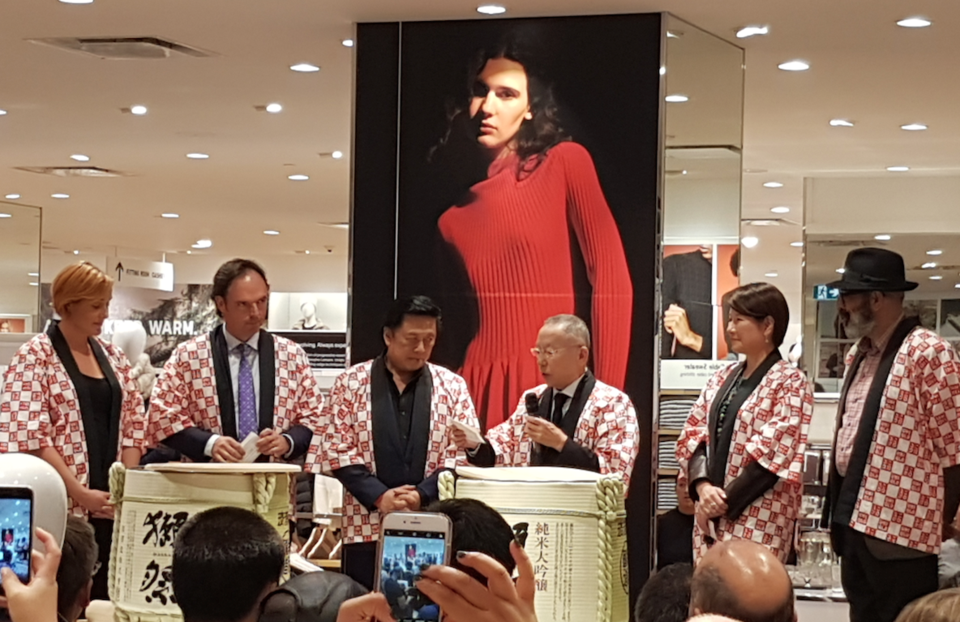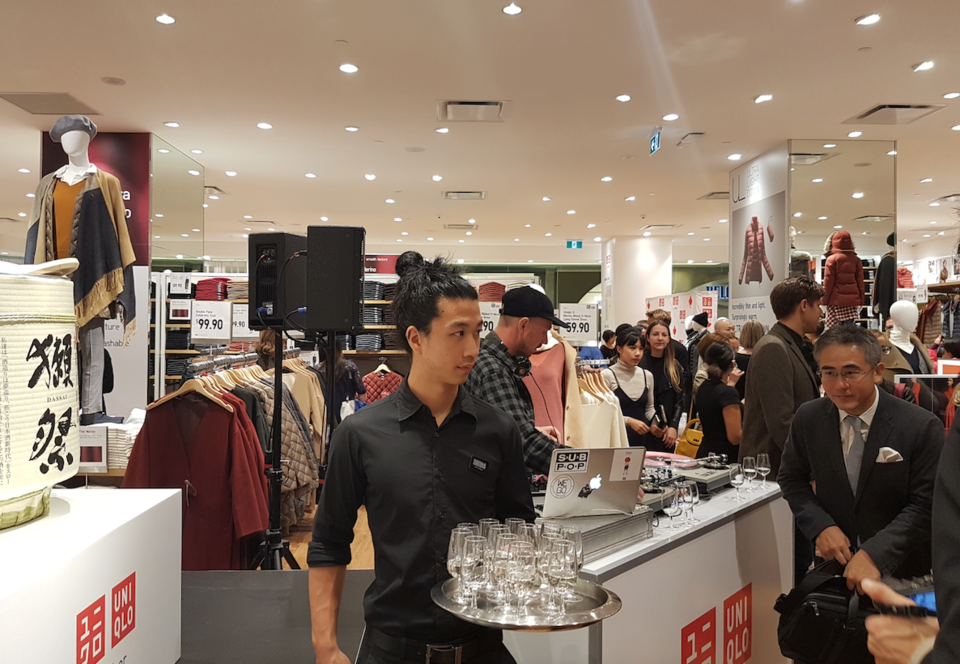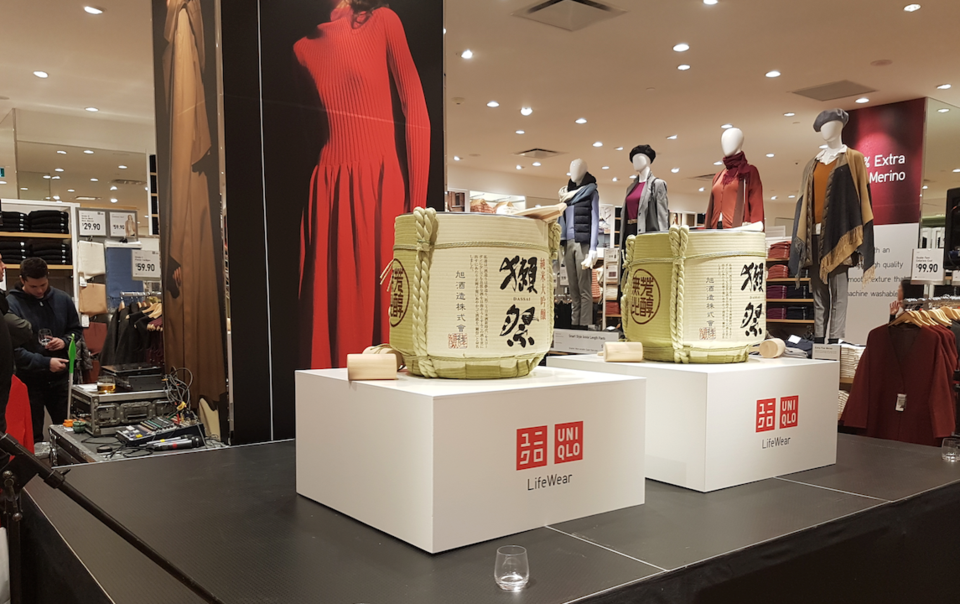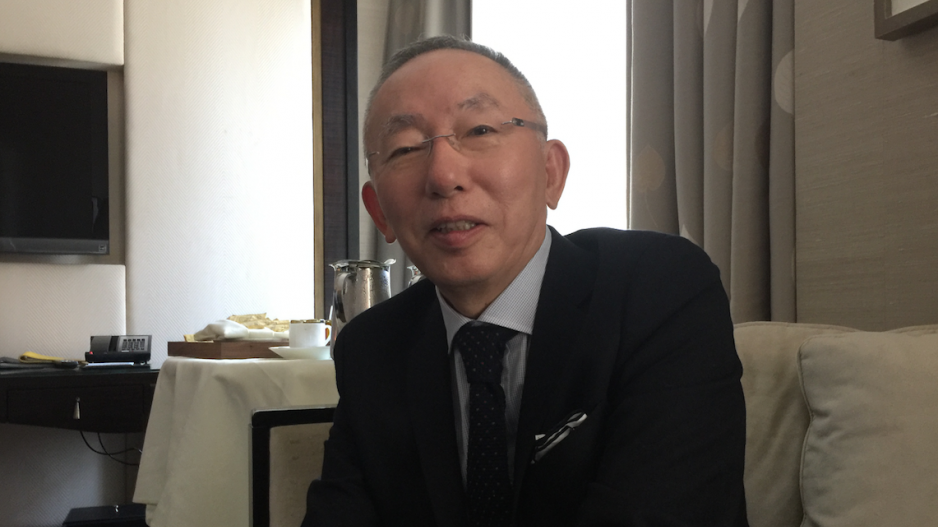The world’s largest fashion retailer that does not already have a presence in B.C. has finally opened a Metro Vancouver store.
Japanese fashion brand Uniqlo opened a 20,630-square-foot, two-level location to the public this morning (October 6) at Metropolis at Metrotown in Burnaby. The store will have a staff in the lead-up to the holiday season of about 200, with many of those being part time.
The only global fashion brands that are larger than Uniqlo are Sweden’s H&M and Spain’s Zara.
The long-anticipated Metro Vancouver Uniqlo launch comes six months after the company announced its location and many years after rumours started spreading that Uniqlo, which has 1,900 locations worldwide, was looking at retail real estate in Vancouver.
Uniqlo CEO and chairman Tadashi Yanai told Business in Vancouver during an exclusive interview on October 5 that his preference was to open his first Canadian store in Vancouver.
“I wanted to build a store first in Vancouver, in Canada – ahead of Toronto,” he said. “Vancouver, from my perspective, is a welcoming gate for the Asian people. This is where a multi-culture background is celebrated and a diversity of lifestyle is being witnessed.”
Finding the perfect location in downtown Vancouver, and the region as a whole, was a challenge so he opened Uniqlo’s first two Canadian stores in Metro Toronto.
First came a 33,400-square-foot store at CF Toronto Eaton Centre in September of 2016, and then a store, which is about 30,000 square feet, at Metro Toronto’s Yorkdale Shopping Centre a month later.
The chain’s average store is between 10,000 square feet and 22,000 square feet so the Toronto stores are large while the Vancouver store’s size is more typical, Yanai said.
He said that Uniqlo’s fashions differ from those on offer at H&M and Zara in that Uniqlo offers more traditional clothing that can withstand more wear.

(Image: Uniqlo CEO and founder Tadashi Yanai officially opens the Burnaby Uniqlo store at a October 5 launch party. From left to right: Julia Hanlon, brand ambassador; Claude Sirois, CEO, Ivanhoe Cambridge; John Jay, president of global creative of Fast Retailing; Yanai; Asako Okai, Japan’s consul general in Vancouver; and Farzad Salehi, brand ambassador | Emma Crawford Hampel)
“We do not go chasing fashion,” he said. “We simply add on and sprinkle the fashion element onto the basic product and that’s the difference between us and Zara and H&M,” he said.
“[We have] basic, classic, traditional items that are twisted by the latest trend and quality. The key word is quality.”
One innovation for which he is particularly proud is his company’s Heattech fabric.
Uniqlo first started selling Heattech garments 15 years ago and the company has now sold more than one billion pieces.
“Heattech is innerwear that will keep you warm,” he said of the lightweight material.
“I would encourage you to try it on during winter-cold days - if you put it on underneath the shirt, you would feel very warm. It could be worn under your dress shirt or other things. This is the revolutionary product.”

(Image: Sake was flowing when Uniqlo held a launch party to celebrate its Burnaby store opening | Emma Crawford Hampel)
Yanai, whose net worth Forbes estimates to be US$15.8 billion, founded Uniqlo in the mid-1980s, when he branched out after taking over his father’s business. By 1988, the name of his Unique Clothing Warehouse had truncated to become Uniqlo.
Today, Uniqlo is part of Fast Retailing, which is a publicly listed company on the Tokyo Stock Exchange.
Other Fast Retailing brands include Comptoir des Cotonniers, GU, Helmut Lang, J Brand, Princesse tam.tam and Theory.
Theory is based in New York City and has more than 200 stores in the U.S., Europe and Asia.
Yanai said it is possible that a second Fast Retailing brand could open in Vancouver although his focus is on Uniqlo.
“Every one. All these brands – all other brands would have the opportunity to come here. We have certain limitations in terms of head counts and how to expand, so we’re not able to come here overnight,” he said.
“I was in the U.S. yesterday and I was having a business discussion with people from Theory. So, Theory might be an opportunity to come here second. We have to first make sure that Uniqlo will become a global brand and Uniqlo will sit at the centerpiece of Fast Retailing and that will be the driving force for the other brands’ globalization.”

(Image: Kegs of sake sit in the middle of the Uniqlo store in Burnaby on October 5 | Emma Crawford Hampel)




